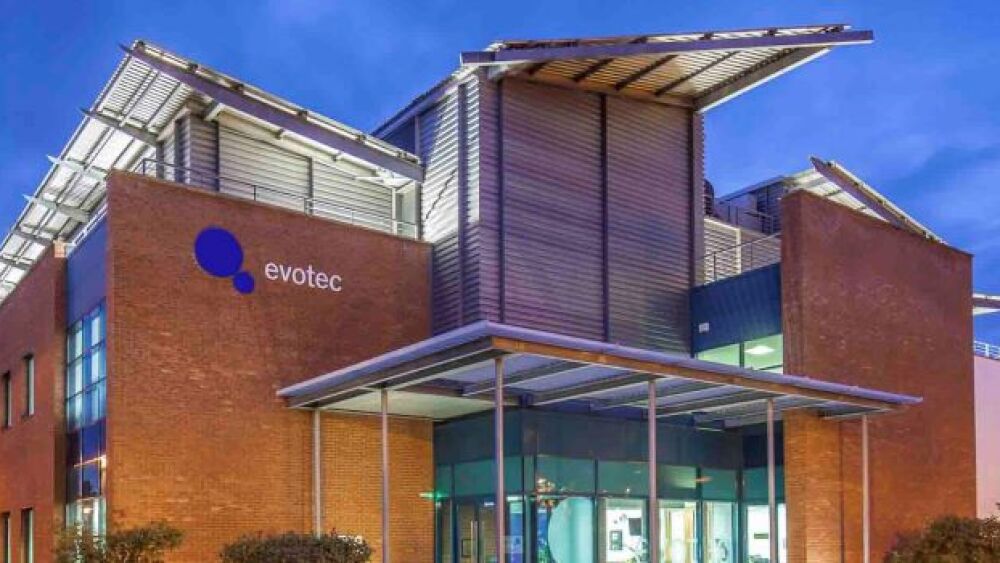Germany-based Evotec AG forged its third partnership in May, a deal with Spain’s Almirall S.A. to develop new therapeutics for severe diseases of the skin.
Courtesy of Business & Innovation Magazine
May has been the month of partnerships for Germany-based Evotec AG. Thursday, the company forged its third partnership of the month with Spain’s Almirall S.A. to develop new therapeutics for severe diseases of the skin, including non-melanoma skin cancers and immune-mediated inflammatory conditions.
The multi-target drug discovery and development partnership will leverage Evotec’s multimodality artificial intelligence and machine learning-driven EVOiR&D platform and Almirall’s experience in dermatology to develop novel therapeutics. Under terms of the partnership, Evotec will be responsible for drug discovery and pre-clinical development, while Almirall will lead the clinical development and marketing.
Werner Lanthaler, chief executive officer of Evotec, expressed excitement about the partnership with Almirall. In a statement, Lanthaler said the collaboration has the potential to deliver “superior first-in-class therapeutic options for many patients suffering from severe skin diseases such as atopic dermatitis or basal cell carcinoma.” By bringing together the EVOiR&D platform with Almirall’s complementary experience in dermatology, Lanthaler said he looks forward to the potential promising new drug candidates that can be produced.
“We believe that combining Almirall’s experience and know-how in Medical Dermatology with Evotec’s integrated drug discovery and preclinical development small molecule platform will enable us to deliver novel solutions for patients suffering from auto-immune skin diseases or common forms of skin cancer,” Karl Ziegelbaner, chief scientific officer of Almirall said in a statement.
Under terms of the partnership, Almirall made an undisclosed upfront payment to Evotec. It is predicted that each program in development could generate up to €230 million, or about $241 million.
Beyond its dermatology pact with Almirall, Evotec’s dealmaking has been in overdrive and has also showcased the wide potential of its pipeline in multiple disease indications. Earlier this week, the company partnered with Canada’s Sernova Corp. to develop an off-the-shelf beta cell replacement therapy for insulin-dependent diabetes patients. The two companies have high hopes for this approach, believing it could ultimately become a functional cure for the disease. As BioSpace reported, the collaboration with Sernova will harness the capabilities of a different Evotec platform, the QRbeta technology, which is used to produce iPSC-based beta cells in islet-like clusters. QRbeta will be paired with Sernova’s proprietary Cell Pouch, an implantable and scalable medical device.
That’s not the only diabetes partnership Evotec has forged over the past few months. In January, the company partnered with Eli Lilly in metabolic diseases with a focus on kidney disease and diabetes. That partnership will rely on the use of Evotec’s kidney disease database and its data-driven drug discovery platforms.
The partnership with Sernova was hot on the heels of an extension of Evotec’s targeted protein degradation collaboration with pharma giant Bristol Myers Squibb. That collaboration aims to use another of Evotec’s platforms, its proprietary EVO panOmics and EVO panHunter platforms. Those platforms are designed to work side-by-side to support an Omics-driven precision medicine a. EVO panpproachOmics involves the use of genomics, transcriptomes, proteomics and phenotypic data altogether. The EVO panHunter technology facilitates the analysis of PanOmics data integrated with other metadata sets in a user-centered bioinformatics platform.
Evotec and BMS also have a partnership in neurodegenerative diseases. In January, the companies extended their protein degradation collaboration in this indication. The two companies first partnered in neurodegeneration in 2016. The initial partnership had a goal to identify disease-modifying treatments for a broad range of neurodegenerative diseases.





